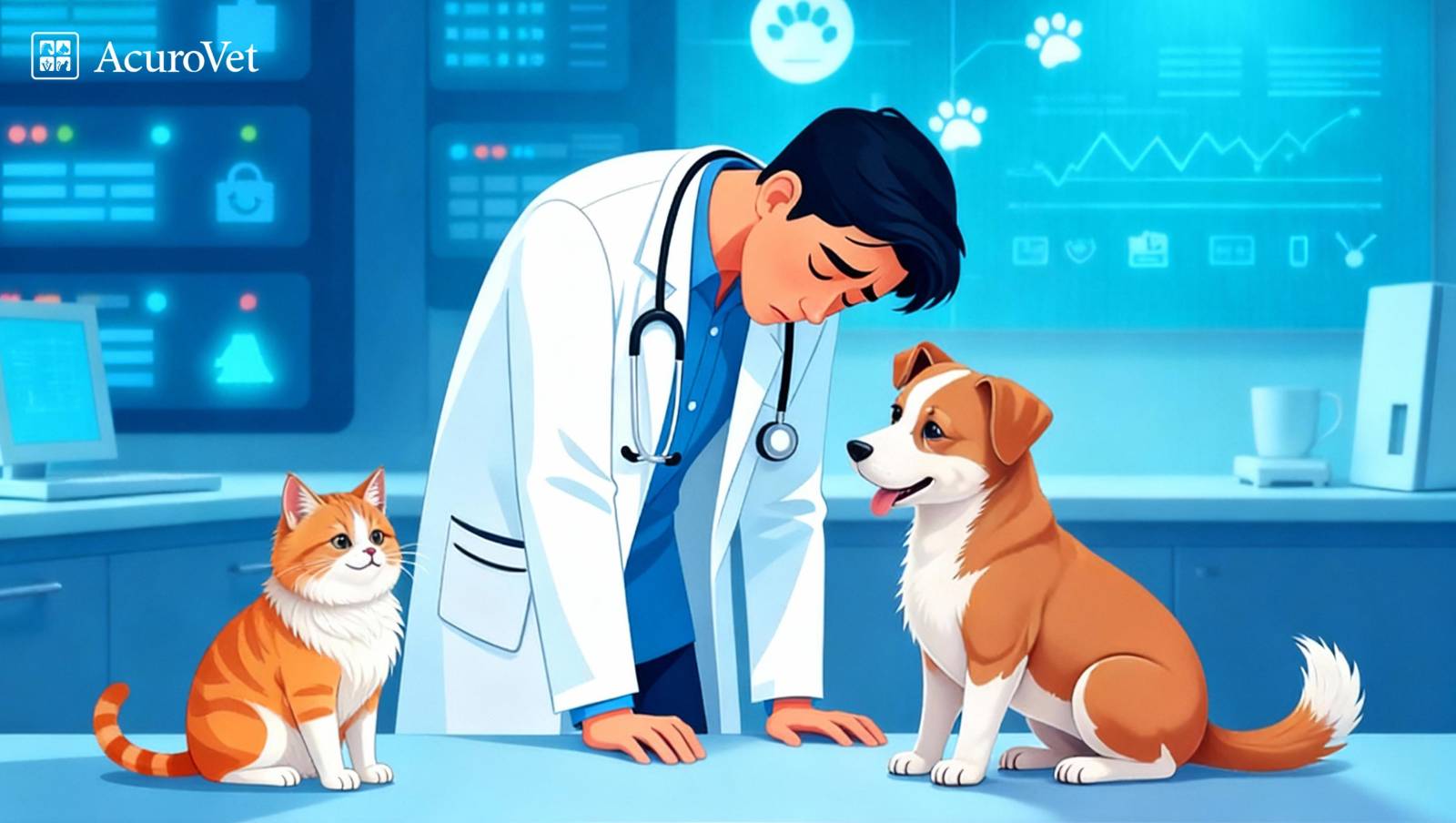
How to Handle Veterinary Burnout and Be Better at Stress Management as a Veterinarian
Discover practical strategies to manage stress, prevent burnout, and improve well-being as a veterinarian through self-care, support, and solutions.
6 min read | Nov 05, 2025 | By Dr. Maureen Kelleher
practice management
Table Of Contents
- Introduction
- Recognizing veterinary burnout
- Five emotional stressors unique to veterinarians
- Self-care and stress management strategies
- Workload and time management tips
- Building a supportive workplace culture
- Institutional and policy-level solutions
- Leadership’s role in preventing veterinary burnout
- Compassion at the Heart of Veterinary Practice
- FAQ
Share this
Never Miss An Update From AcuroVet!
Join Us Now!
Get expert insights, newsletters,
webinars, blogs, resources & more.
webinars, blogs, resources & more.
Get AcuroVet Free
for 30 Days!
for 30 Days!
Experience overall growth in Efficiency, Time management, Revenue & Pet care.

Recent blog posts

Oct 11, 2025
practice managementHow is AcuroVet the Best Veterinary Software for Vet Clinics in 2025
Discover how AcuroVet stands out as the best veterinary software for vet clinics in 2025 by managing endless paperwork, managing teams and reduce cost

Aug 22, 2025
productIntroducing the Wellness Feature in AcuroVet
Discover how AcuroVet’s Wellness feature simplifies preventive care with automated reminders, species-specific tests, and client engagement tools, helping your practice save time, improve compliance, and deliver healthier outcomes.
